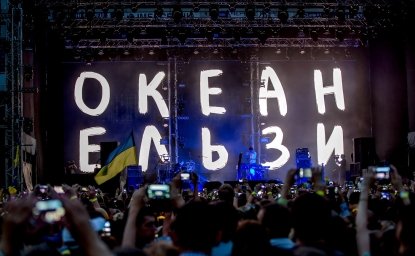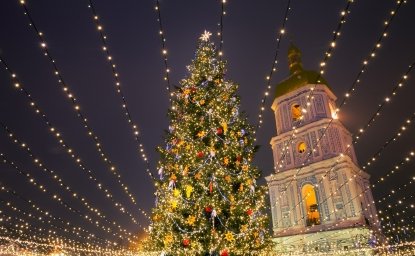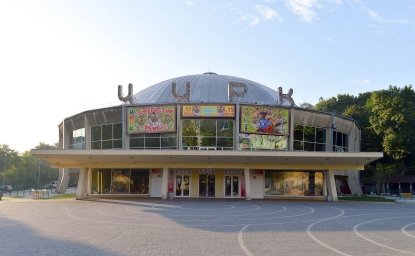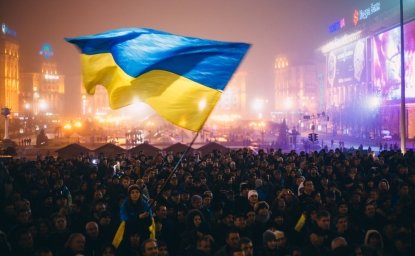Ukraine’s Historical Moment
Reflections on a year that changed everything

A blog of the Kennan Institute
Reflections on a year that changed everything
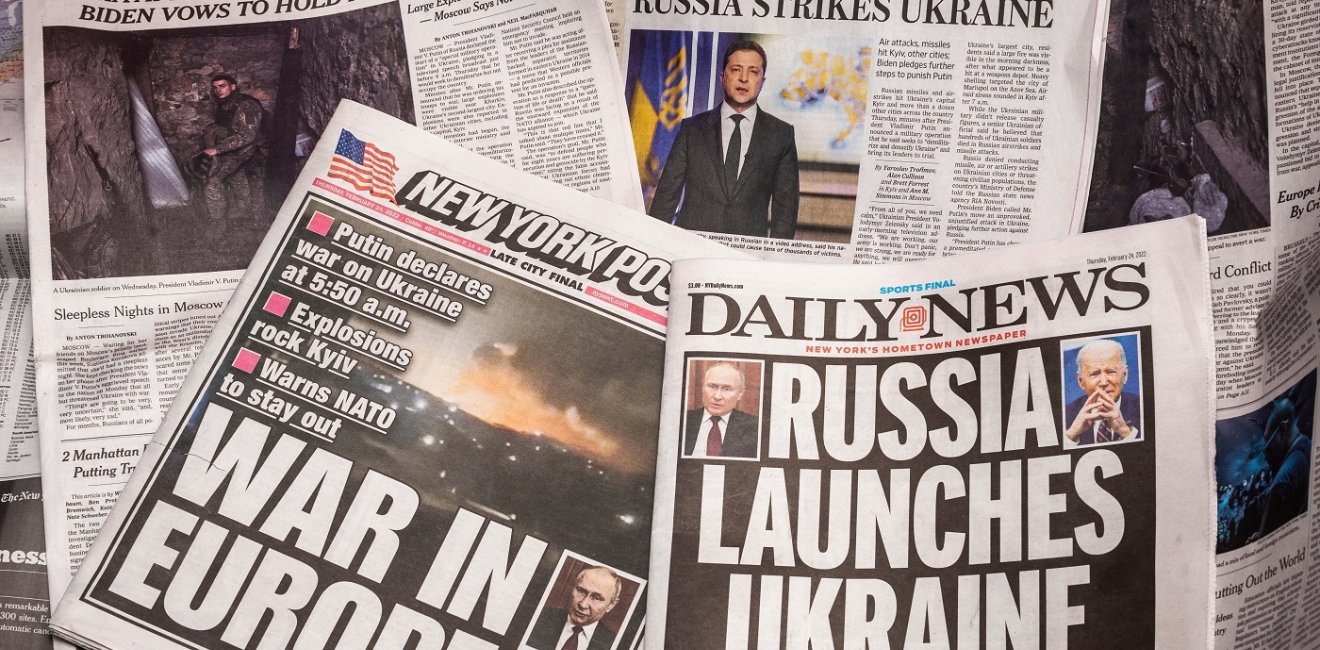
February 24 marks the one-year anniversary of Russia launching a full-scale offensive against Ukraine. The events of the past twelve months have given many of us, observers and participants alike, the harrowing experience of watching the war—and the profound changes it wrought—in real time, of witnessing a historical moment that vastly overshadows our usual daily concerns.
In this piece, which is a result of my conversations with family, friends, colleagues, and students, both inside and outside of Ukraine, I focus on the results of the war to date for Ukraine, Russia, and the West writ large—the three parties most comprehensively involved in the conflict. All three have responded to the challenges of this moment in ways that stand to change them for good.
Ukraine’s Endurance
In arguably the most extraordinary and least expected turn of events, Ukraine met Russia’s attack with powerful resistance, and to date has outlasted and outstrategized the Russian forces. Trained by the grueling experience of the drawn-out hostilities in the Donbas, Ukraine’s diverse citizenry has built capacity to resist military violence and bear up under a wartime economy.
Political scientists have asserted for decades that warmaking is state-building. But since 2014, Ukraine has demonstrated how warmaking becomes nation-building. While the core state institutions of Ukraine were arguably not fully prepared to fight the aggressor back in February 2022, Ukrainian society was. Its unshakable resistance has provided Kyiv, Washington, and Brussels with the time necessary to prepare Ukraine’s military for success in liberating most of the territory seized in the first weeks of the war.
Ukraine’s endurance is notable because it achieved far more than simply survival (though that is an achievement in and of itself). Ukrainians have exhibited honor and courage in coping with the challenges of war and defending their country. Their response to lethal aggression from a much bigger country with one of the strongest armies in the world has commanded attention and respect across the globe.
Ukrainian citizens have developed tremendous solidarity and resilience, which show up in everyday interactions. For example, when Ukrainians ask how you are, it is not just a formulaic greeting: they really want to know how you are feeling today, and whether you need any help. Many Ukrainians say they have developed some “emotional calluses” and do not react to the wartime tragedies with the kind of sensitivity they would exhibit in peacetime. But when a neighbor asks for help, a response comes quickly.
Mass participation in the resistance has forced many Ukrainians to radically change their lifestyles. Sometimes they ask each other, who were you before the war? It takes an effort to remember, since their wartime roles are all-consuming and a return to civilian occupations is unimaginable right now.
Putin’s Russia in Moral Shock
Russian elites and the Russian population are in a deepening moral shock. For Putin’s clique, whose corruption destroyed the efficacy of Russia’s intelligence services and the strength of the Russian army, the shock comes from its own inability to compete with Ukrainian forces or to undermine the Western alliance around Ukraine’s cause. The oligarchic clans, who ceded their political role to the Kremlin in the early 2000s but continued enjoying the luxury-filled lives of tycoons, were dealt a blow by the Western sanctions and the necessity to assume a humbler existence, now as global outcasts.
The Russian power elites have lost the ground on which their regime was built. Putin’s social contract envisaged an exchange of civil and political liberties for the socioeconomic security of Russian households. Today the Kremlin can offer neither security to current (and future) military recruits and their families nor a stable income to families. The only future Putin can offer is a war that ends in defeat, an international tribunal, lasting poverty, and political destabilization.
The Russian populace has passed from a state of denial (or ignorance: many consume only the propagandistic news stories of state-owned media) to a deep moral and psychological shock comparable to that of the Soviet population during Gorbachev’s perestroika when it learned of the crimes of Bolshevism and Stalinism. In the 1980s, this moral shock induced a kind of self-destruction of Soviet society.
In 2022, the moral and legal groundlessness of Russia’s attack on Ukraine forced Russians to take a hard look once again at what had happened to them, their federation, and their economy. Internal debates on the causes of the war and any protest against it are deemed criminal behavior. Now the most sanctioned country in the world, and militarizing its rather undeveloped economy, Russia has turned away from what arguably could have been the most economically rewarding period in its history. From being a major migrant receiving nation, Russians has become a nation of emigrants. Russia—the state, the society, and the economy—is on the path of self-destruction once again.
The Reshaping of the West
During the Russian invasion of Ukrainian Crimea and the Donbas in 2014, the West dithered over an appropriate response, proving ineffective in contending with Russia’s aggression. In the prepandemic year, Western leaders, some under the influence of hard-right Ukrainian nationalism or its spokespersons, stood by as the global trend toward “Westlessness” picked up steam. In the fight against the pandemic, Western nations often looked inward for solutions to a global catastrophe. But Russian aggression in 2022 awakened Western nations and their leaders.
During 2022, the West exhibited more solidarity than at any time in recent decades. The cooperation of the United States, the EU, NATO, and the G-7 countries around the agenda of supporting Ukraine and containing Russia coalesced with unprecedented speed and effectiveness. NATO was reinvented as a major security provider to the central and western European countries, with several new candidate countries reevaluating their previously neutral status and seeking admission to the organization. The EU governing bodies demonstrated salutary efficiency in supporting Ukrainian refugees and the Ukrainian government. The new Western solidarity is so intense that it has markedly compressed the space for the traditional neutrality of some European nations.
This solidarity is probably what has forced the West to reevaluate and be more open about its regional identity. The politically unsavory metaphor counterposing the Western “garden” to the global “jungles” nonetheless expresses well the fragmentation of a global order once helmed by the West. After the start of Putin’s revolt against the rules-based international order, the West has become more united in some ways but geopolitically smaller and less globally influential in others. This reshaping happened quickly and efficiently, and the Kremlin must face the results.
History does not stop here. It is hard to predict which outcomes will be in the headlines a year from now. However, I hope that in February 2024 the major topics of discussion will be the first steps in Ukraine’s reconstruction, the postwar reordering of eastern Europe, and the workings of the war crimes tribunal. Let’s see how realistic this dream is.
The opinions expressed in this article are those solely of the author and do not reflect the views of the Kennan Institute.


The Kennan Institute is the premier US center for advanced research on Eurasia and the oldest and largest regional program at the Woodrow Wilson International Center for Scholars. The Kennan Institute is committed to improving American understanding of Russia, Ukraine, Central Asia, the South Caucasus, and the surrounding region though research and exchange. Read more

